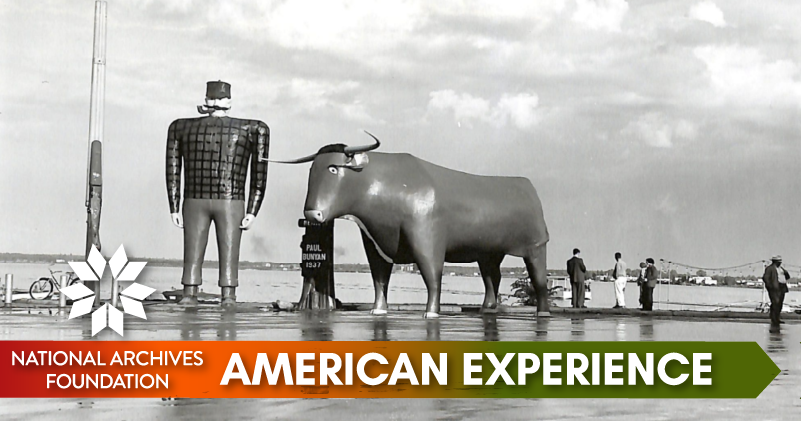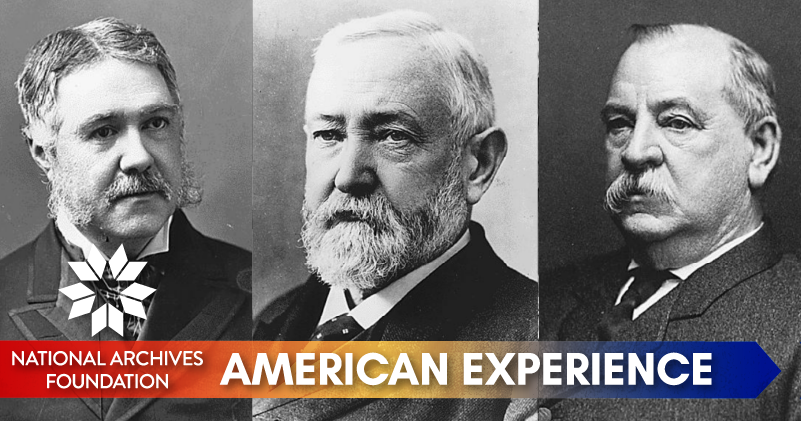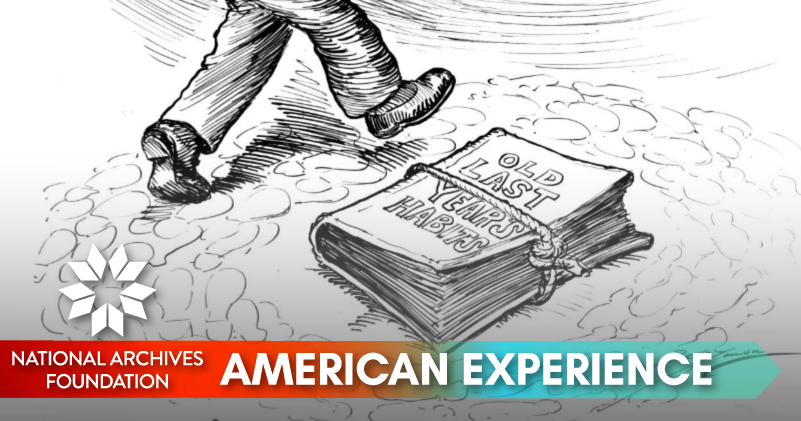Unspoken Words

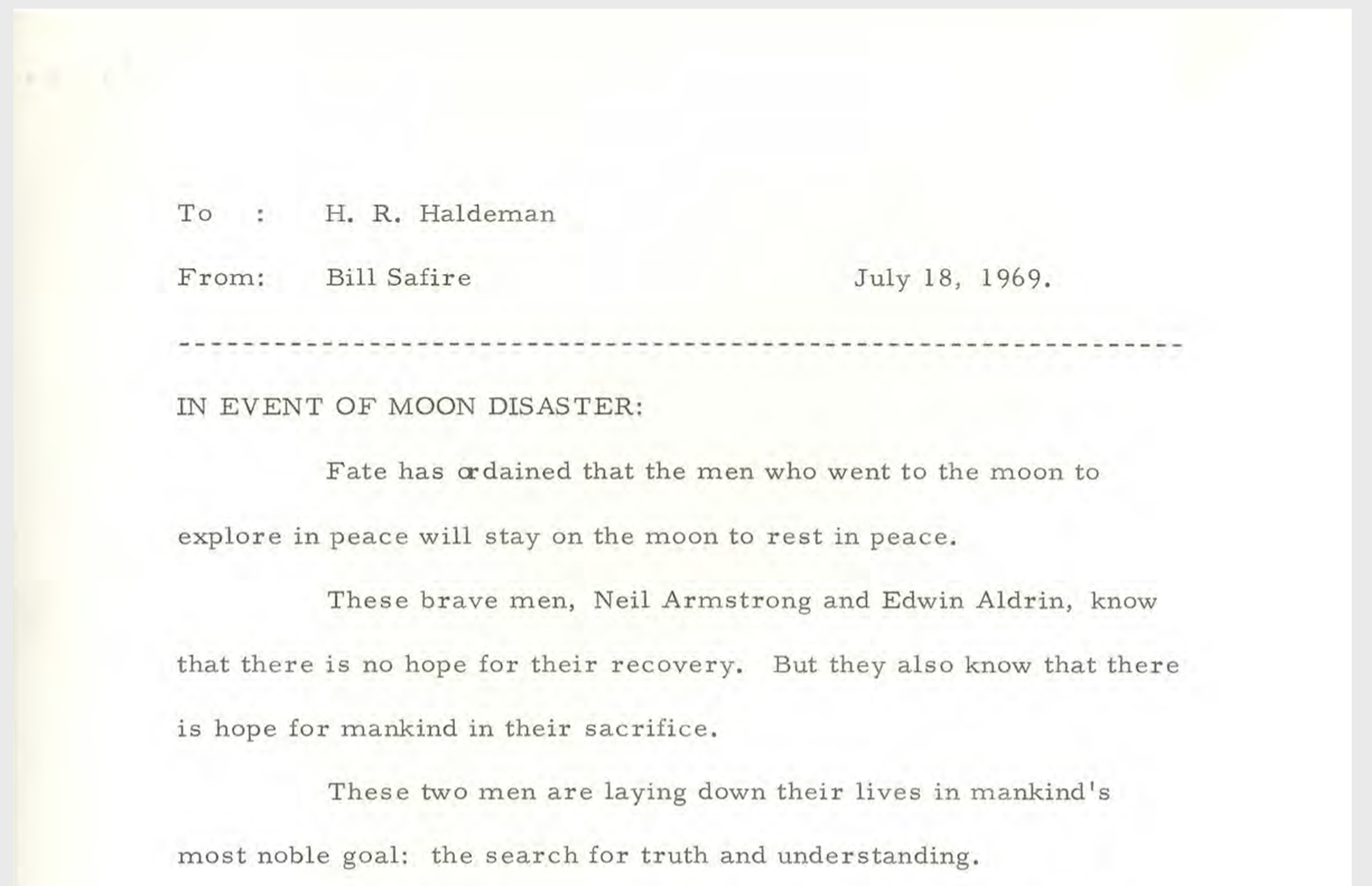
In Event of Moon Disaster
One of the great pieces of life advice is that some things are better left unsaid. Whether you are in a heated argument or debating a colleague in a professional setting, the words we choose can hit the mark or become a stinging memory that lingers for years.
Speechwriters live for the turn of phrase or the prose that can capture a mood. The most famous speeches in history such as President Kennedy’s Inaugural speech, President Franklin Roosevelt’s “A day that will live in infamy” speech, and President Ronald Reagan’s “Tear down this wall” speech are seared in our memories. But many speeches were prepared with equal attention and importance, but never delivered.
One example is President Richard Nixon’s speech he had at the ready in case the astronauts of Apollo 11 failed to leave the moon. After informing the public that the astronauts had been lost, Nixon planned to say, “In ancient days, men looked at stars and saw their heroes in the constellations. In modern times, we do much the same, but our heroes are epic men of flesh and blood. Others will follow, and surely find their way home. But these men were the first, and they will remain the foremost in our hearts.”
Stirring words that, thankfully, were not needed. This week, we share a few other “never delivered” speeches from the holdings of the National Archives.

Patrick Madden
Executive Director
National Archives Foundation
Eisenhower: In Case of Failure
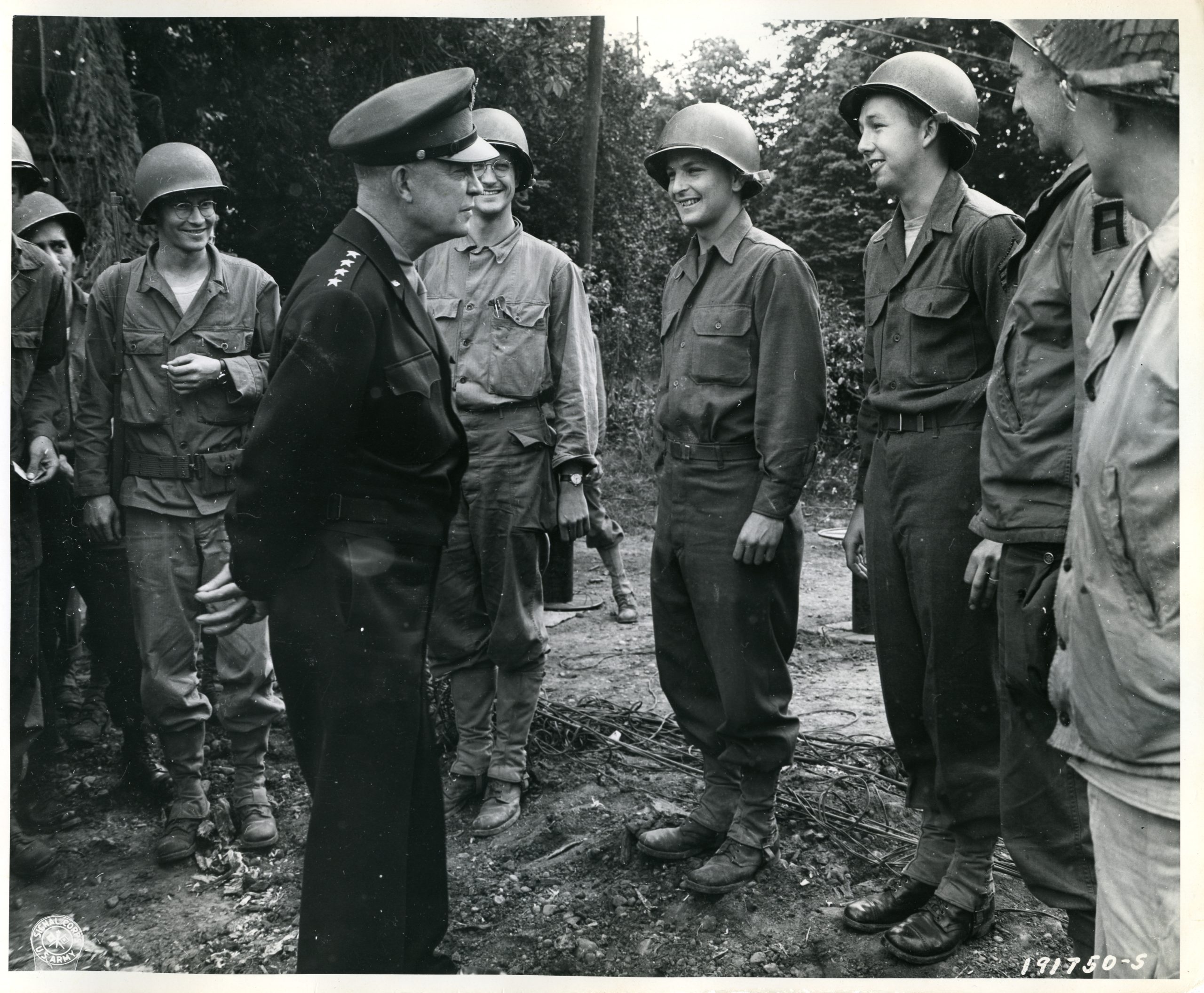
With the troops
On the eve of D-Day, before General Dwight D. Eisenhower ordered a massive military invasion of Nazi-occupied France from the British side of the English Channel, he composed a short speech that he planned to deliver in the event that Operation Overlord failed.
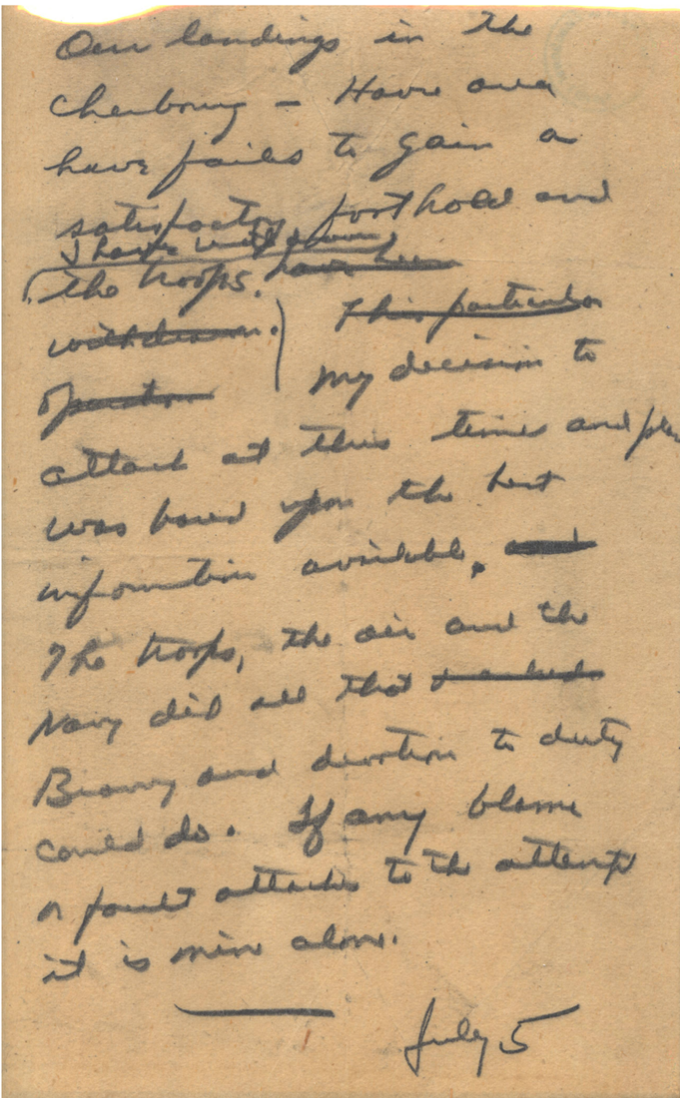
In case of failure…
“Our landings in the Cherbourg-Havre area have failed to gain a satisfactory foothold and I have withdrawn the troops,” he wrote. “My decision to attack at this time and place was based on the best information available. The troops, the air and the Navy did all that bravery and devotion to duty could do. If any blame or fault attaches to the attempt it is mine alone.”
Fortunately for the world at large, the D-Day invasion succeeded. Just under a year later, Germany surrendered to the Allies.
Eisenhower’s handwritten message is held in the Eisenhower Presidential Library, an affiliate of the National Archives, in Abilene, Kansas.
Kennedy: Remarks at the Trade Mart
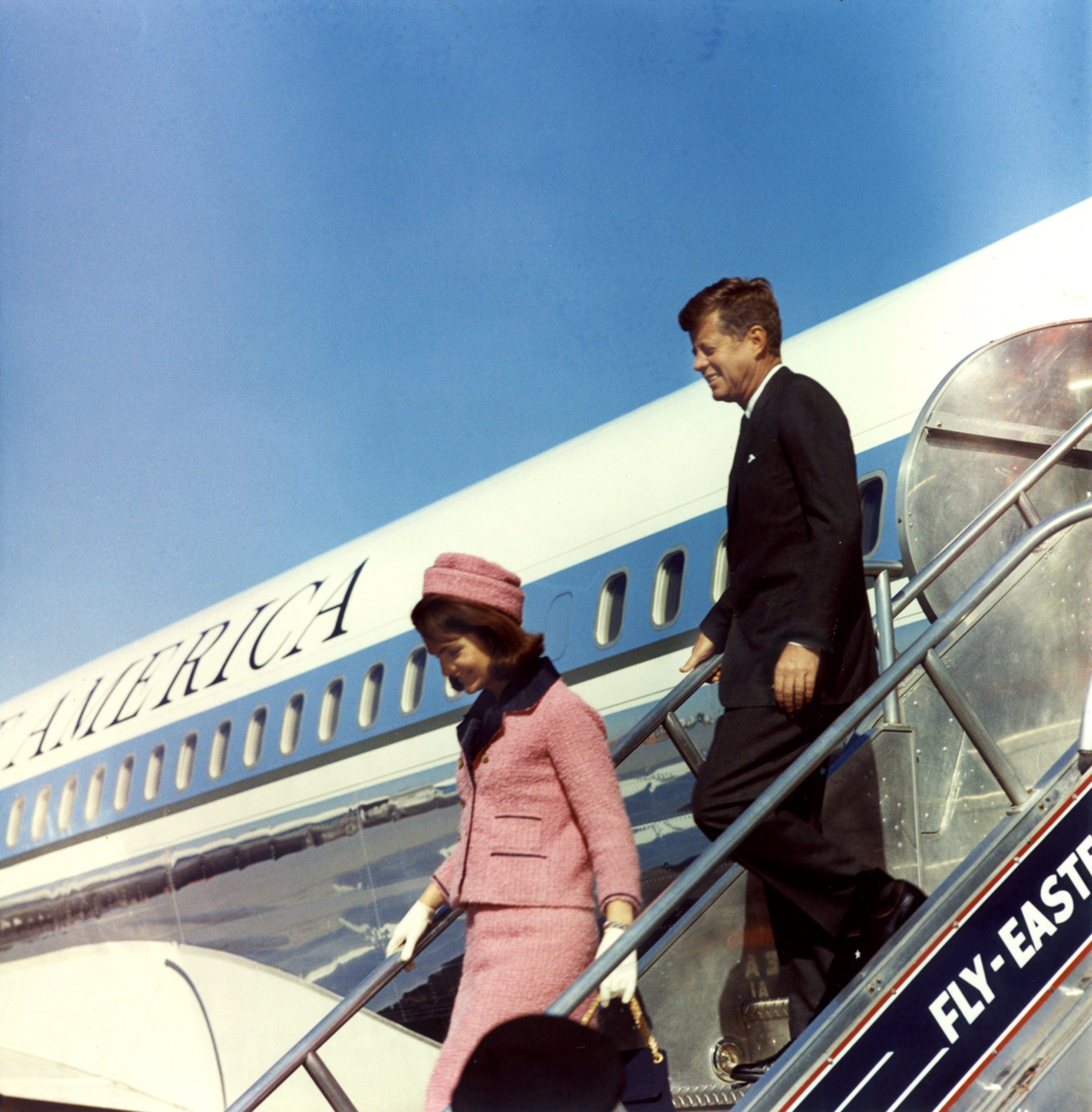
The Kennedy’s arrival
When President and Mrs. Kennedy went to Dallas on November 22, 1963, he was planning to deliver a speech to the Dallas Citizens Council at the Trade Mart.
The typescript of that speech, written on notecards and now held in the John F. Kennedy Presidential Library and Museum in Boston, Massachusetts, tells us what he had on his mind that day.
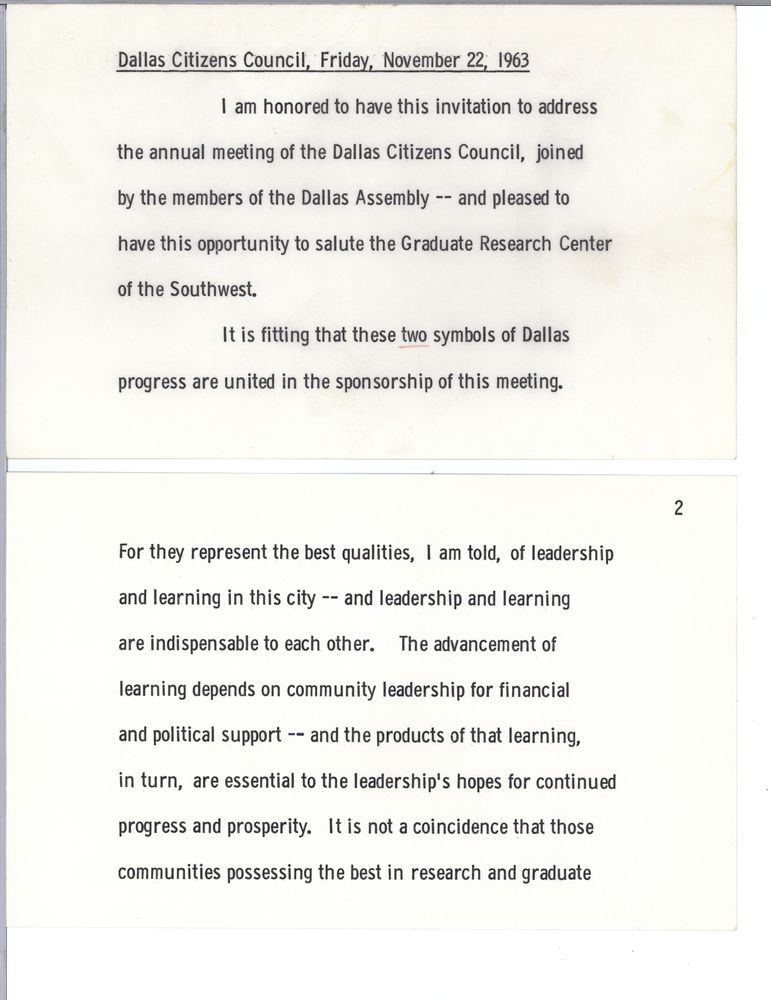
Undelivered remarks for Dallas Citizens Council, Trade Mart, Dallas, Texas, 22 November 1963
Source: Kennedy Library
The President planned to speak about the link between leadership and learning. “In a world of complex and continuing problems, in a world full of frustrations and irritations, America’s leadership must be guided by the lights of learning and reason or else those who confuse rhetoric with reality and the plausible with the possible will gain the popular ascendancy with their seemingly swift and simple solutions to every world problem,” he observed.
Kennedy planned to state that, “But today other voices are heard in the land – voices preaching doctrines wholly unrelated to reality, wholly unsuited to the sixties, doctrines which apparently assume that words will suffice without weapons, that vituperation is as good as victory and that peace is a sign of weakness.”
Nixon: Will I? Won’t I?

Nixon in consultation
On July 24, 1974, the U.S. Supreme Court ruled that President Richard M. Nixon must turn over the tapes of phone conversations he had made with several of his associates about the break-in at Democratic National Headquarters in the Watergate complex in Washington, D.C. Nixon knew he was in serious danger of being impeached and removed from office, so he began contemplating resigning.

President’s Personal Files, 1/20/1969 – 8/9/1974
National Archives Identifier: 595291
Over the two days of August 4 and 5, speechwriter Raymond K. Price, Jr., drafted two speeches, one in which Nixon resigned from the highest office in the land, and a second in which he refused to resign. In the latter, which of course was never delivered, Nixon stated, ‘I firmly believe that I have not committed any act of commission or omission that justifies removing a duly elected President from office. . . . If I did believe that I had committed such an act, I would have resigned long ago.’
As luck would have it, on August 5, the tape that became known as the “Smoking Gun” was released. The conversation clearly showed that Nixon had conspired with his chief of staff, H. R. Haldeman, to cover up the burglary at the Watergate. Nixon resigned from the presidency that evening.
Price’s files of “Option B,” as the non-resignation speech was called, are in the holdings of the National Archives.
Wamsutta James’ Thanksgiving Speech
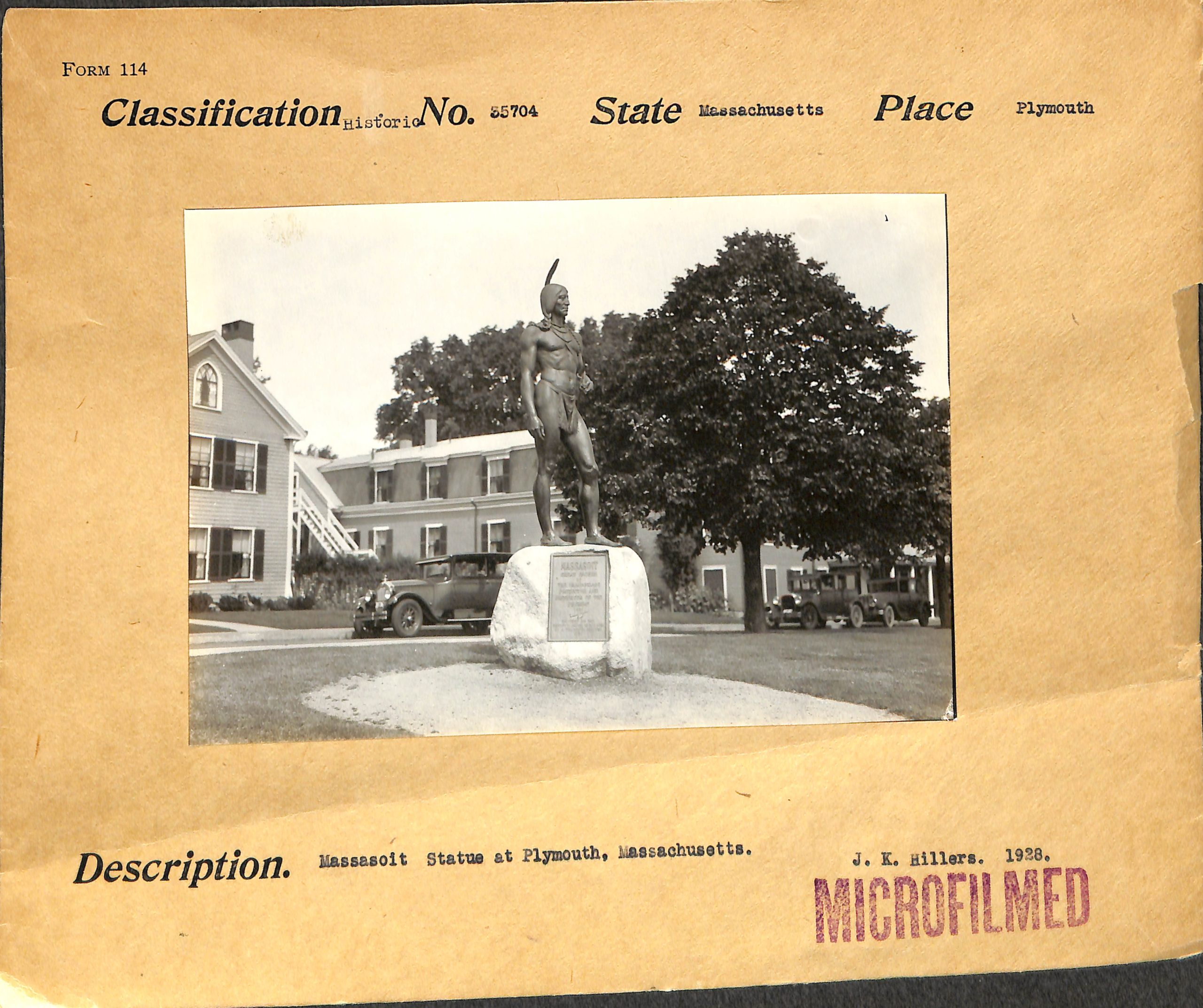
Massasoit Statue at Plymouth, Massachusetts
For many Americans, Thanksgiving is a grand opportunity for family and friends to gather and celebrate. For Native Americans, however, the occasion is a reminder of great loss.
Wamsutta James, a member of the Wampanoag Indian tribe, which lived in what became Massachusetts, was invited to speak at the 350th anniversary of the arrival of the Pilgrims at Plymouth. Instead of making a celebratory speech, James planned to declare Thanksgiving Day a national day of mourning for Native Americans.
“It is with mixed emotion that I stand here to share my thoughts,” James wrote. “This is a time of celebration for you – celebrating an anniversary of a beginning for the white man in America. A time of looking back, of reflection. It is with a heavy heart that I look back upon what happened to my People.”
James then detailed the long history of wrongs perpetuated by white settlers on the Wampanoag tribe. He spoke of the ravages that the diseases that whites had brought to North America had wrought among his people, but he concentrated on the theft of Indian lands. “And so down through the years there is record after record of Indian lands taken and, in token, reservations set up for him upon which to live. The Indian, having been stripped of his power, could only stand by and watch while the white man took his land and used it for his personal gain. This the Indian could not understand; for him, land was survival, to farm, to hunt, to be enjoyed. It was not to be abused. We see incident after incident, where the white man sought to tame the ‘savage’ and convert him to the Christian ways of life. The early Pilgrim settlers led the Indian to believe that if he did not behave, they would dig up the ground and unleash the great epidemic again.”
James submitted his speech to the organizers for their approval, but they rejected it. He declined to deliver a different speech.
Wamsutta James died in 2001. He was active in the movement to promote Native American sovereignty throughout his life. He did not live to see the setting aside of lands for the Wampanoag tribe in 2015.
If Lincoln Had Lost

Photographic portrait proofs of Lincoln
President Abraham Lincoln’s second inaugural address is one of the most famous in American history. “With malice toward none; with charity for all; with firmness in the right, as God gives us to see the right, let us strive on to finish the work we are in; to bind up the nation’s wounds; to care for him who shall have borne the battle, and for his widow, and his orphan – to do all which may achieve and cherish a just, and a lasting peace, among ourselves, and with all nations,” he wrote, indicating his intention to win the Civil War for the Union and bring the Confederate states back into the fold.
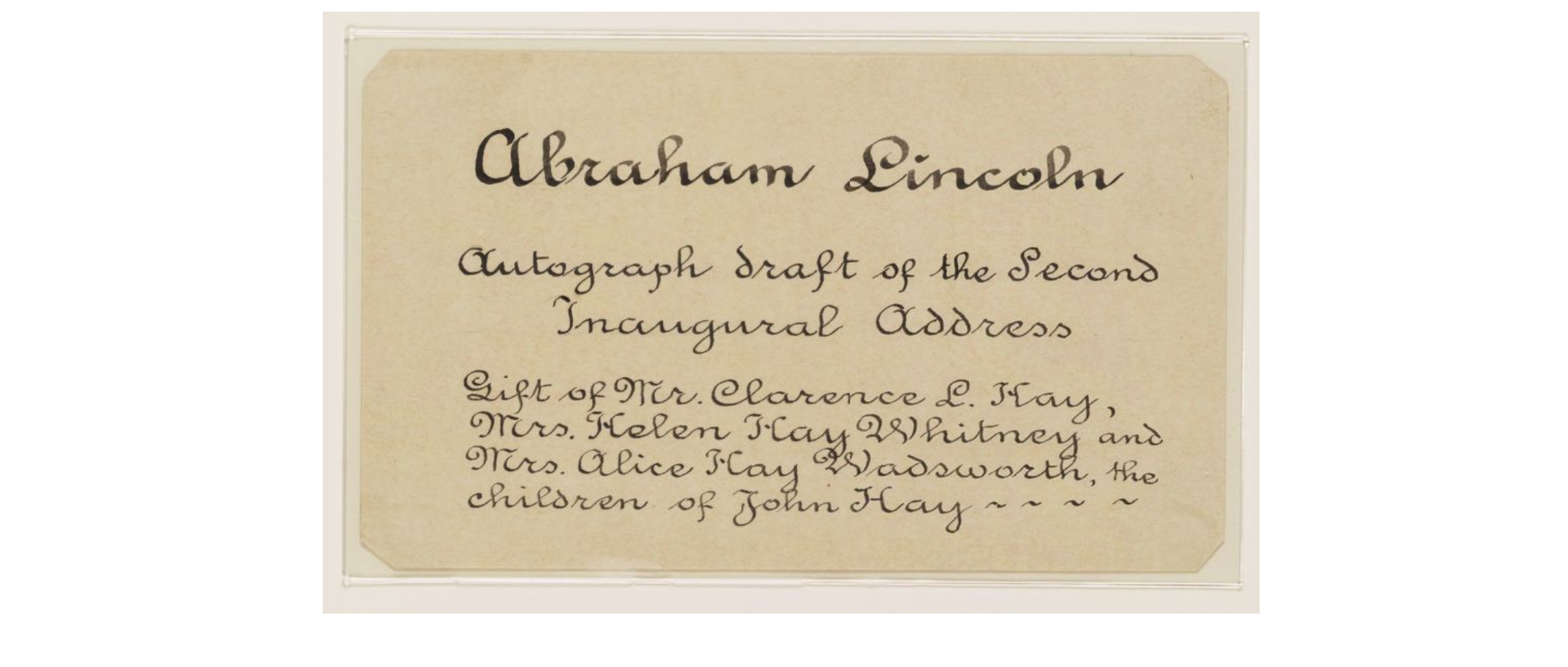
Lincoln’s Second Inaugural Address
Source: Library of Congress
However, when the Presidential election of 1864 was only three months away, Abraham Lincoln believed he would lose, and badly, to George B. McClellan. He also anticipated that a McClellan victory would spell disaster.
Therefore, Lincoln prepared a document for his cabinet that he sealed and put away. It was only to be opened if he lost the election. “This morning, as for some days past, it seems exceedingly probable that this Administration will not be re-elected,” he wrote. “Then it will be my duty to so cooperate with the President elect, as to save the Union between the election and the inauguration; as he will have secured his election on such ground that he can not possibly save it afterwards.”
Lincoln was determined to win the war for the Union. If he had lost the election, he most likely would have launched an all-out assault on the South because he did not believe McClellan could lead Union troops to victory. Fortunately for Lincoln, Atlanta fell to General William T. Sherman on September 2, which turned the tide of public opinion in Lincoln’s favor and secured his election to a second term.





